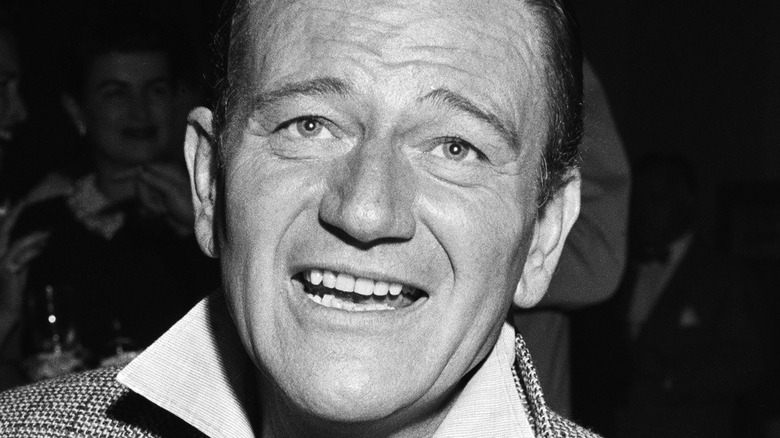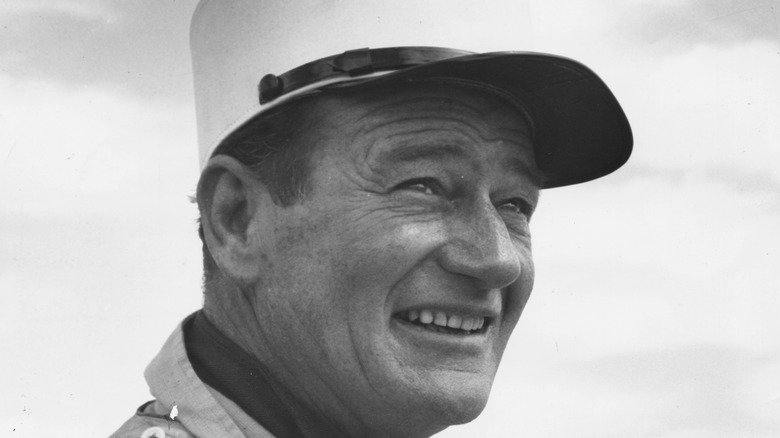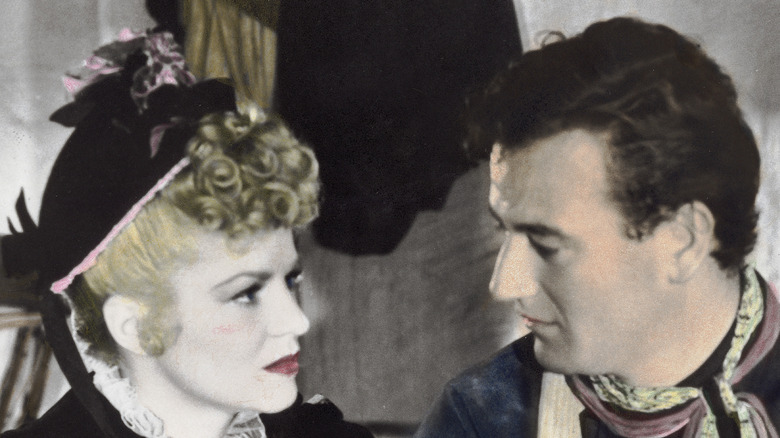Why John Wayne Almost Quit Hollywood As A Young Actor
The Western film genre is as much a staple of American culture as apple pie. The genre has waned in popularity recent years, however, as shown by how many Westerns Hollywood studios produced back in the 1930s through the 1950s versus more contemporaneously. The themes and the imagery of cowboys, outlaws, Native tribes, and the wild, unclaimed land endure nonetheless, with "The Power of the Dog" and the Paramount television series "Yellowstone" both seeing success in the 21st century.
Despite the recent films and shows that feature ranchers, horses, and protagonists with cowboy hats, in the world of Hollywood, the term "Western" is still synonymous with John Wayne. Most Wanted Western Movies states that Wayne starred in films across multiple genres beginning in the late 1920s, but was in at least one western nearly every year from the 1930s to 1950, and later won an Oscar for his role in the western "True Grit" in 1969.
John Wayne fell out of favor with a Columbia Pictures Executive
John Wayne's career as an actor was lengthy and undeniably successful. But as with most Hollywood stories, the road to such stardom was not always smooth. Wayne did not immediately come across films like "True Grit" when he was first starting out in the movie business. He starred in "The Big Trail" in 1930, but the film didn't bring in much money at the box office for 20th Century Fox. The studio went bankrupt. Luckily, Columbia became a new home for Wayne (per Cheatsheet).
Trouble in Hollywood did not stop there. Harry Cohn was the head of Columbia Pictures in the 1930s. Express explains that Cohn was interested in an actress involved with the studio and demanded that all the other men stay away from her. Wayne was unaware of Cohn's affections for her, and spoke to the young woman. The powerful studio executive began casting Wayne in minor films playing even more minor characters despite Wayne's attempts to reason with him about the flirtatious ordeal.
John Wayne's role in Stagecoach finally made him a star
John Wayne's reputation among the major film studios tanked. Though he eventually regained his footing, he seriously considered leaving Hollywood. "John Wayne: My Life with the Duke," a book written by Wayne's ex-wife Pilar and Alex Thorleifson reveals that Wayne "hated feeling like a failure, knowing [Harry] Cohn had made a fool of him so easily. He also felt that he had let down off-screen love interest Josephine Saenz and his mentor John Ford, whom he met before even graduating college. The only thing that kept Wayne from leaving the film industry was the fact that he did not know "how to do anything other than make movies" (per Cheatsheet).
Ford was perhaps what saved Wayne's career. PBS explained that in the years following the failure of "The Big Trail" and the conflict with Columbia, Wayne and Ford remained friends. Ford was becoming increasingly popular as a director, and gave the lead role in his film "Stagecoach" to Wayne. This became Wayne's big break. As Wayne's situation proves, it pays to have friends in high places, especially when dealing with foes in high places as well.


